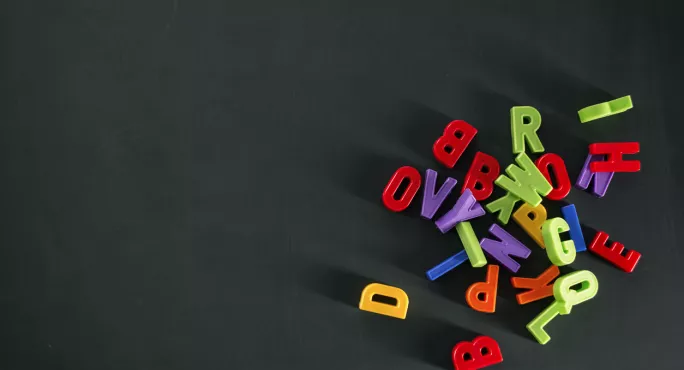- Home
- ‘There is a magic bullet in education, after all’
‘There is a magic bullet in education, after all’

“What is a school to do when 24 per cent of its students enter Year 7 with a reading age of 5?”
It’s a question faced by a school in Blackpool: one of the most challenging areas in the country. But it’s also a pertinent one for every teacher because there will be one or two children in most classes - the national average is 4 per cent - whose reading age will be below age 7.
Alex Quigley: ‘Vocab isn’t the key to success, but it’s a start’
Listen: The secret to great teaching? Keep it simple
World Book Day: ‘Schools should embrace dressing up’
How are children supposed to access the curriculum if they cannot read? The answer is so blindingly obvious that it is rarely asked. They can’t.
Yet, according to our research, a quarter of all 15-year-olds nationally will have a reading age of 12. And, in the most challenging schools, the proportion will likely be a lot higher and the average reading age a lot lower.
This is not a reflection on the quality of teaching, but rather of the centrality of reading.
Those who read well, achieve well
Our secondary school curriculum is deep, rich and text-heavy. To navigate it successfully, students must be equipped with good literacy skills and a well-stocked vocabulary. Unsurprisingly, those who read well tend to achieve well.
Less obvious, perhaps, is that this remains true of all subjects at GCSE - not just those traditionally associated with high levels of reading.
According to the same research, the correlation between reading ability and eventual exam performance is as high in maths and science and the expressive arts as it is in English, history and modern foreign languages.
Numeracy minus literacy, it turns out, doesn’t equal success. A good maths student is likely to be a good reader, a promising musician is likely to be a good reader, and a potential prize-winning physicist will only reach her goal once she has conquered the daunting thickets of text.
Reading is the closest thing to a magic bullet
It is often said that there are no magic bullets in education - but literacy comes pretty close.
Equip a student with excellent reading skills, and the subject literacy to understand the specifics of a discipline, and they will fly.
How, then, can we ask a student who struggles to read a complete sentence to grasp - let alone explain - the concepts of photosynthesis or the divine right of kings?
This is the challenge facing our secondary schools. Because, if reading is such a crucial element of eventual success in maths, geography, history and science, then ensuring students can read well is also the responsibility of mathematicians, geographers, historians and scientists.
Literacy is a whole-school endeavour. Responsibility for it cannot be given solely to the English department. Nor can it be assumed that every student starting Year 7 will have the reading skills to cope with the secondary curriculum.
Literacy, it seems, is not just a whole-school endeavour; it’s a continual endeavour, too.
Tackling illiteracy head-on
If this is a challenge for all secondary schools it is doubly so for those catering to the most disadvantaged.
What would you do if 24 per cent of your students entered Year 7 with a reading age of 5?
The question was posed by Alex Quigley, a critical friend to the Blackpool Literacy Project*. The answer, it turns out, is to go back to basics, to tackle illiteracy head-on.
The school with the daunting literacy challenge at Year 7 that Quigley refers to is South Shore Academy, a partner in the Blackpool project. The vast majority of its students are on free school meals, most are white and a significant number are highly transient.
Many of those students, its teachers realised, were never going to learn if they continued to struggle to read.
So they did two things: they deliberately changed the culture of the school to ensure teachers were getting children to read as soon as they came into class. And they concentrated on deepening subject literacy.
Reading and vocabulary in all subjects
Students now spend 20 minutes reading each day in form time, with those who struggle the most getting tailored phonics support, too, and they are immersed in the teaching of reading and vocabulary in all subjects.
Students are no longer spoon-fed chunks of decontextualised information but are trained on how to skim, scan and access material in textbooks.
Not every school will have literacy challenges on the scale of South Shore. But every secondary school will have students who cannot access the curriculum because they cannot read sufficiently well.
If we are to help them, we must understand how deep their problem is, and what interventions are most appropriate.
And we must devote far more resources to evidence-informed literacy training for staff, which is a key feature of the Blackpool project.
Above all, every teacher, regardless of discipline, must be in no doubt that reading ability isn’t just a useful adjunct for success in their subject, but a vital component of it.
*The Blackpool Literacy Project, which involves eight secondary schools and one PRU, aims to improve literacy in one of the most deprived areas of the country. It was commissioned by Blackpool Opportunity Area, led by Stephen Tierney and St Mary’s Catholic Academy in Blackpool and managed by Right to Succeed
Crispin Chatterton is director of education at GL Assessment
Keep reading for just £1 per month
You've reached your limit of free articles this month. Subscribe for £1 per month for three months and get:
- Unlimited access to all Tes magazine content
- Exclusive subscriber-only stories
- Award-winning email newsletters

